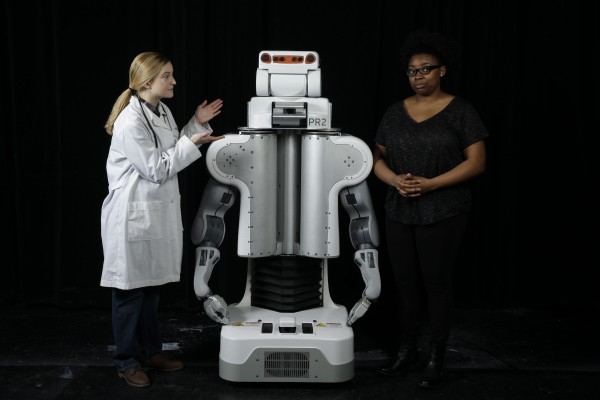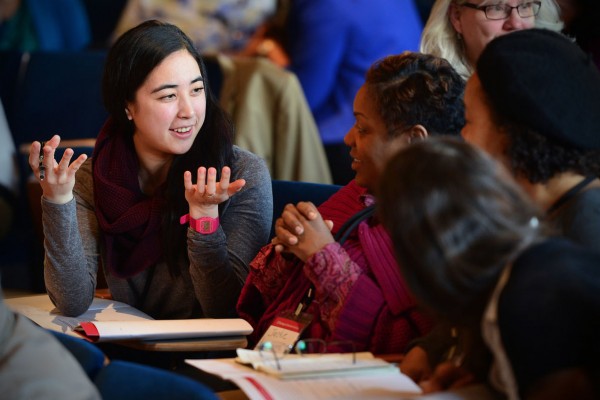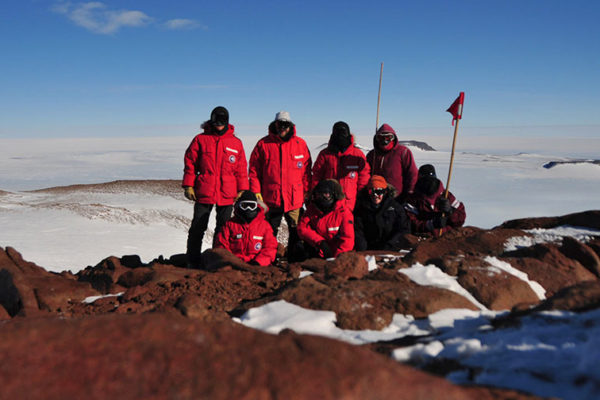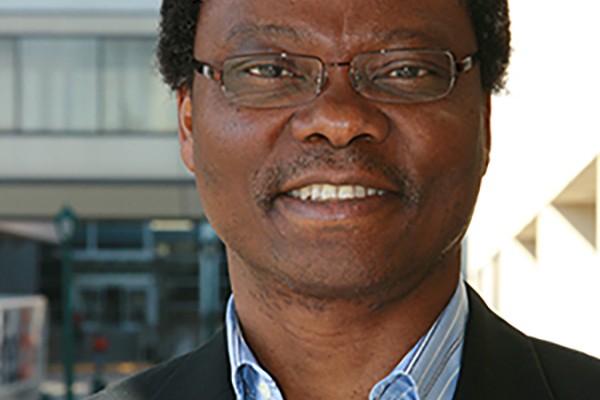Drama, mortality and robots
Can theater movement-training techniques help real-life computer scientists improve human/robot interactions? Beginning March 26, director Annamaria Pileggi will put that theory to the test with “Sky Sky Sky,” a world premiere drama featuring three human actors and one PR2 robot. Performances take place in the A.E. Hotchner Studio Theatre, located in Mallinckrodt Center, 6465 Forsyth Blvd.
Harder-to-abuse OxyContin doesn’t stop illicit use
A reformulation of OxyContin (left) that makes it less likely to be abused than the older formulation (right) has curtailed the drug’s illicit use. But researchers at the School of Medicine have found that a significant percentage still abuse the drug despite package labeling that emphasizes its abuse-deterrent properties.
School of Medicine, BJC HealthCare plan new office building
Washington University School of Medicine and BJC HealthCare are planning to build a 12-to-14-story office building on the site of the Storz Building on the Medical Campus.
10th annual African Film Festival showcases innovative filmmakers, powerful stories
Oscar-nominated film “Timbuktu,” the Mauritanian masterpiece about Islamist extremists and the community that dares to defy them, headlines this year’s African Film Festival at Washington University in St. Louis, held March 27-29. Other highlights include a youth matinee and a discussion with filmmaker Ekwa Msangi.
Mind sciences explore Ferguson, racial bias and policing March 27
Scholars of philosophy, psychology, neuroscience and other sciences of the mind will discuss how insight from their disciplines can help us better understand and eliminate the effects of racial bias in policing during a free forum March 27 at Washington University.
Ancient Africans used ‘no fly zones’ to bring herds south
Isotopic analysis of animal teeth from a 2,000-year-old herding settlement near Lake Victoria in southern Kenya show the area was once home to large grassland corridors — routes that could have been used to dodge tsetse flies and bring domesticated livestock to southern Africa.
New committee to help shape diversity and inclusion strategy
Building largely on the momentum generated by “Race & Ethnicity: A Day of Discovery and Dialogue,” held Feb. 5 and 6 at Washington University in St. Louis, a newly formed committee has been created to develop a strategy and action plan to help the university become more diverse, inclusive and welcoming.
Hunting for meteorites
Every austral summer, a group of volunteers heads off to a remote region
of Antarctica to set up a field camp on the ice. For the next month, they search the ice and nearby glacial moraines for dark rocks that might be extraterrestrial in origin. Research scientist Christine Floss describes this year’s trip, which included a record-setting day.
Sedley to deliver Biggs Lecture for Assembly Series
David Sedley, PhD, an internationally acclaimed Greek philosopher, will deliver the annual John and Penelope Biggs Lecture in the Classics for the Assembly Series at 4 p.m. Thursday, March 19, in the Bryan Cave Moot Courtroom in Anheuser-Busch Hall on the campus of Washington University in St. Louis. The lecture, “What Is Plato’s Theory of Forms?” is free and open to the public.
Innovative light therapy reaches deep tumors
Researchers led by Samuel Achilefu, PhD, at the School of Medicine have devised a way to apply light-based therapy to deep tissues never before accessible. Instead of shining an outside light, they delivered light directly to tumor cells, along with a photosensitive source of free radicals that can be activated by the light to destroy cancer.
View More Stories







